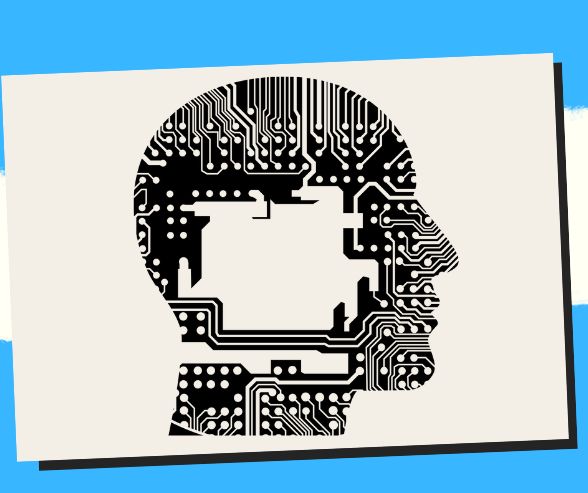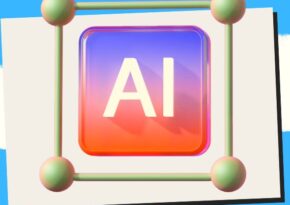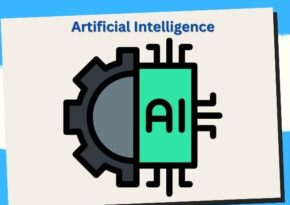
Guardians of Trust: How AI Navigates Ethical Challenges in the Digital Realm 


 Artificial Intelligence and Ethics in Maintaining Digital Trust
Artificial Intelligence and Ethics in Maintaining Digital Trust 

In the age of rapid technological advancement, artificial intelligence (AI) has emerged as a powerful tool with the potential to reshape industries, improve efficiency, and enhance our lives. However, this tremendous power comes with significant responsibilities, particularly in ethics and digital trust. In this article, we’ll explore the fascinating intersection of AI and ethics, delving into how AI impacts our lives and how we can ensure that it operates within ethical boundaries to maintain and strengthen digital trust.
AI’s Expanding Role in Our Lives
Artificial intelligence is no longer a concept relegated to science fiction; it’s a reality that surrounds us. AI plays a significant role in our daily lives, from virtual assistants like Siri and Alexa to personalized product recommendations on e-commerce platforms. Let’s take a closer look at how AI has permeated various aspects of our existence:
**1. *Healthcare*: AI algorithms can analyze medical data to assist in disease diagnosis, drug discovery, and personalized treatment plans.
**2. *Finance*: AI is used for fraud detection, algorithmic trading, and assessing credit risk.
**3. *Education*: Personalized learning platforms utilize AI to adapt to student’s individual needs and learning styles.
**4. *Autonomous Vehicles*: AI powers self-driving cars, potentially revolutionizing transportation.
**5. *Customer Service*: Chatbots and virtual assistants provide round-the-clock customer support and assistance.
**6. *Content Recommendations*: Streaming platforms use AI to suggest movies, music, and articles based on user preferences.
**7. *Cybersecurity*: AI helps identify and respond to security threats in real time.
The Ethical Dilemmas of AI
While AI has brought remarkable advancements, it also presents complex ethical challenges. Here are some of the key ethical dilemmas associated with AI:
**1. *Privacy*: AI algorithms often rely on vast amounts of data, raising concerns about data privacy and consent.
**2. *Bias*: AI systems can inherit biases in their training data, leading to unfair or discriminatory outcomes.
**3. *Accountability*: Determining responsibility when AI systems make mistakes or harmful decisions is challenging.
**4. *Transparency*: The inner workings of many AI algorithms are opaque, making it difficult to understand or challenge their decisions.
**5. *Job Displacement*: The automation potential of AI raises concerns about job displacement and economic inequality.
**6. *Autonomy*: Autonomous AI systems, like self-driving cars, require ethical decisions about prioritizing safety in complex situations.
**7. *Security*: The potential for AI to be used maliciously, such as deepfake technology, raises concerns about digital trust and security.
Maintaining Digital Trust Through Ethical AI
To ensure that AI continues to be a force for good and maintains digital trust, it’s crucial to address the ethical challenges it presents. Here are strategies to guide the responsible development and use of AI:
**1. *Data Privacy*: Implement robust data privacy measures to protect user information, including clear consent mechanisms and data anonymization.
**2. *Bias Mitigation*: Continuously monitor and address bias in AI algorithms, using diverse training data and rigorous testing to ensure fairness.
**3. *Transparency*: Strive for transparency in AI systems by making their decision-making processes more understandable and explainable.
**4. *Accountability*: Establish clear lines of accountability for AI systems and ensure mechanisms for recourse in cases of harm or errors.
**5. *Education and Awareness*: Promote AI literacy among the public and stakeholders to foster informed discussions and decision-making.
**6. *Ethical Frameworks*: Develop and adhere to ethical guidelines and AI development and deployment frameworks.
**7. *Regulation*: Advocate for and support regulations that ensure responsible AI development and use.
**8. *Human Oversight*: Maintain human oversight in critical AI decision-making processes, especially those with significant ethical implications.
Real-World Applications of Ethical AI
Let’s explore some real-world applications where ethical AI is making a positive impact:
**1. *Healthcare Diagnostics*: AI-powered diagnostic tools help doctors make more accurate and timely diagnoses, improving patient outcomes.
**2. *Environmental Conservation*: AI monitors and protects endangered species by analyzing data from sensors and cameras.
**3. *Criminal Justice Reform*: AI algorithms are being developed to reduce bias in predictive policing and sentencing decisions.
**4. *Disaster Response*: AI-driven predictive models help authorities prepare for and respond to natural disasters more effectively.
**5. *Accessibility*: AI-driven assistive technologies, like speech recognition and text-to-speech, improve accessibility for individuals with disabilities.
**6. *Agriculture*: AI-powered precision agriculture techniques enhance crop yields while minimizing environmental impact.
The Role of Explainable AI (XAI)
Explainable AI (XAI) is an emerging field focusing on making AI systems more transparent and interpretable. XAI helps address the “black box” problem, where AI decisions are difficult to understand. XAI can enhance accountability and trust by providing insights into how AI reaches its conclusions.
AI and the Ethical Dilemma of Job Displacement
One of the most significant ethical dilemmas associated with AI is the potential for job displacement. Automation powered by AI can render certain jobs obsolete. However, it’s essential to recognize that AI can also create new jobs and opportunities.
For example:
- AI Development and Management: The demand for professionals who can develop, manage, and maintain AI systems is rising.
- AI Ethics and Governance: Ethical considerations surrounding AI have given rise to new roles focused on ensuring responsible AI use.
- Human-AI Collaboration: Many jobs will involve working alongside AI systems, enhancing human capabilities.
- Reskilling and Education: Efforts to reskill and educate the workforce for AI-related roles are essential to mitigate job displacement.
AI and Digital Trust in the Future
As AI advances, it will play an increasingly pivotal role in shaping our future. Here are some trends and developments to watch:
**1. *Ethical AI Research*: Continued research and development of ethical AI frameworks and technologies will be crucial.
**2. *AI Regulation*: Developing AI-specific regulations and guidelines will help ensure responsible AI use.
**3. *AI in Healthcare*: AI’s role in healthcare will expand, revolutionizing diagnostics, drug discovery, and patient care.
**4. *AI in Education*: AI-powered personalized learning platforms will become more prevalent.
**5. *AI in Climate Action*: AI will play a vital role in addressing climate change by optimizing resource use and predicting environmental trends.
**6. *AI Governance*: Organizations will implement robust AI governance structures to ensure ethical AI deployment.
Conclusion: Striking the Balance
Artificial intelligence represents an incredible opportunity to drive innovation, efficiency, and progress. However, its responsible use and adherence to ethical principles are paramount in maintaining digital trust and ensuring that AI continues to benefit humanity.
Striking the balance between harnessing the power of AI and safeguarding against potential pitfalls requires collaboration among technologists, policymakers, ethicists, and society as a whole. By prioritizing ethical considerations and responsible AI development, we can navigate the evolving landscape of AI with confidence, integrity, and digital trust.
Related Queries
Balancing innovation and digital trust with AI ethics
AI’s role in navigating ethical challenges for digital trust
Shaping ethical digital trust with artificial intelligence
AI’s moral compass in maintaining digital trust
Exploring ethical dilemmas and AI in the digital age
The synergy of AI and ethical decision-making for digital trust
Corporate trust and the importance of AI ethics
Investing in the ethical AI revolution for digital interactions
Securing digital trust with AI and ethical standards
Building a trustworthy digital future with AI and ethics
Save/Share this story with QR CODE
Disclaimer
This article is for informational purposes only and does not constitute endorsement of any specific technologies or methodologies and financial advice or endorsement of any specific products or services.
 Need to get in touch?
Need to get in touch?

We appreciate your reading. 
1.) 

Your DONATION will be used to fund and maintain NEXTGENDAY.com
Subscribers in the Philippines can make donations to mobile number 0917 906 3081, thru GCash.
3.) 
4.) 
AFFILIATE PARTNERS

World Class Nutritional Supplements - Buy Highest Quality Products, Purest Most Healthy Ingredients, Direct to your Door! Up to 90% OFF.
Join LiveGood Today - A company created to satisfy the world's most demanding leaders and entrepreneurs, with the best compensation plan today.



 Business Technology, Finance Technology & Information Technology
Business Technology, Finance Technology & Information Technology

















 Revolution through the ages – embark on an extraordinary […]
Revolution through the ages – embark on an extraordinary […]
